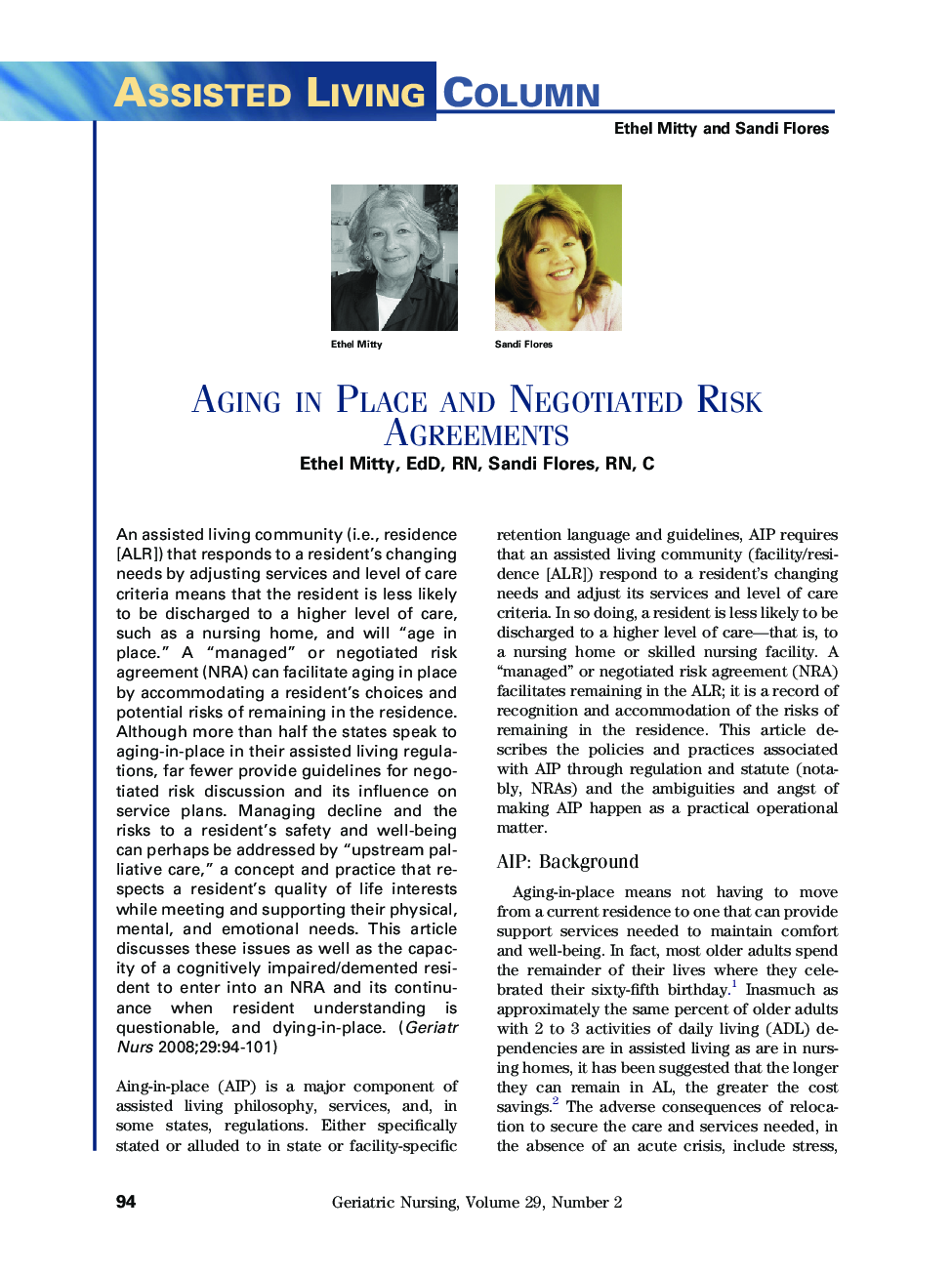| Article ID | Journal | Published Year | Pages | File Type |
|---|---|---|---|---|
| 2651250 | Geriatric Nursing | 2008 | 8 Pages |
An assisted living community (i.e., residence [ALR]) that responds to a resident’s changing needs by adjusting services and level of care criteria means that the resident is less likely to be discharged to a higher level of care, such as a nursing home, and will “age in place.” A “managed” or negotiated risk agreement (NRA) can facilitate aging in place by accommodating a resident’s choices and potential risks of remaining in the residence. Although more than half the states speak to aging-in-place in their assisted living regulations, far fewer provide guidelines for negotiated risk discussion and its influence on service plans. Managing decline and the risks to a resident’s safety and well-being can perhaps be addressed by “upstream palliative care,” a concept and practice that respects a resident’s quality of life interests while meeting and supporting their physical, mental, and emotional needs. This article discusses these issues as well as the capacity of a cognitively impaired/demented resident to enter into an NRA and its continuance when resident understanding is questionable, and dying-in-place.
